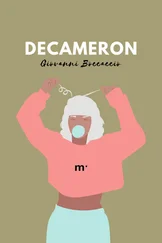Eileen, wearing her nightgown and drinking Postum, because it usually made her sleepy, sat at the table in the room’s corner kitchenette with the volume on her radio turned low, listening to Louis Armstrong sing “Do You Know What It Means to Miss New Orleans,” and then, perhaps because the DJ wanted to lighten the funereal mood, “Jeepers Creepers.” Halfway through the song, she happened to look over at her son. He was holding apart the lids and lower folds of skin beneath his eyes to give himself a goggly look in comical reference to the “peepers” part of the song.
Eileen laughed and waved at him to stop. Michael returned to his book.
A sea-scented breeze ruffled the curtain of the open window next to her as night quietly settled in.
1972 PRECIPITATE IN ILLINOIS
Elsie had never seen so much rain in all of her fifty-eight years. It was as if a great spigot had been opened up over Waukegan and nobody knew how to turn it off. Elsie had almost talked herself out of driving to the mall that afternoon because of the weather, but had finally decided to make the two-mile trip because if she hadn’t, she was quite certain she would soon find herself climbing the walls of her new apartment like some caged primate at the zoo.
It had been three weeks since Elsie Thompson’s arrival in Waukegan. Her son had talked her into selling her house in Muncie — the house she had owned with her husband until his untimely death six months earlier — talked her into leaving her friends and her church and the familiarity of the town where she had spent all of her adult years. Her son thought she would benefit from living near her only child and her only two grandchildren. So he found Elsie a clean and quiet apartment in this town of industry and cool lake breezes and a great big enclosed mall for her shopping convenience. The Lakehurst. The one with the seagull on the sign.
Elsie didn’t need much convincing. She did want to be near her son, who designed pinball machines in Waukegan, and her daughter-in-law, who taught school in nearby Gurnee, and her two granddaughters, who, at eight and eleven, were just the right ages to appreciate having a loving and doting grandmother close by. Hers was the familiar story of a woman set adrift by sudden widowhood and finding comfort in those loving family members who also remained behind — comfort that was sometimes coupled with sheer, stultifying boredom.
That night on Eyewitness News, the weatherman would report that four inches had fallen on Waukegan, Illinois, that day — a record. Four inches of rain, which collected into myriad puddles and opportunistic ponds in the middle of traffic intersections — shallow lakes, really, so large that Elsie was given to wonder, as her car skidded and splashed and pontooned through them, if nearby Lake Michigan was expanding its shoreline one block of Waukegan at a time.
As Elsie pulled into the large parking lot that encircled the mall (except for one soggy empty field on the south side where, it was hoped, a Sears or Montgomery Ward would eventually go), she was disappointed to discover that thousands of others had also ventured out on this waterlogged Tuesday. In 1972, enclosed shopping malls were still things of relative novelty and innovation. To think that one could now go to a place protected from all the elements and shop for as long as one’s heart desired (or at least for as long as one’s legs held out) — whatever would these enterprising retailers think of next?
Elsie shook the rain from her umbrella and sought out an unoccupied bench where she could shrug off her raincoat and remove her galoshes to her big plastic carrying bag. Once properly prepared for her afternoon of shopping, she began her exploration of this bright, shiny, modern mall, dry and comfortable and in the perfect frame of mind.
Elsie wandered without purpose. She window-shopped and aisle-browsed. Betty’s of Winnetka was having a sale on beachwear, and Chas A. Stevens bragged in big, bold letters about its large inventory of summer sandals, and there were brand new futuristic microwave ovens in the appliance section of Wiebolts for only six hundred dollars. Elsie had a scoop of chocolate mint ice cream at Bresler’s, chocolate mint being one of the chain’s thirty-three advertised flavors. She tried on a pair of white crinkle-vinyl knee-high boots at Thom McAn and couldn’t keep herself from giggling when the salesman sang a couple of lines from “These Boots Are Made for Walking.” She even found the courage to steal into the clanging, pinging semi-dark interior of Aladdin’s Castle to see one of the pinball machines her son had designed. She identified “Haunted Cemetery” immediately.
Elsie eventually found herself in Carson Pirie Scott & Company, one of the mall’s three anchor department stores. She had once visited Carson’s flagship store on State Street in Chicago, and wondered if the suburban version would feel as elegant. She was struck by the large contemporary light display above the escalators — great concentric circles of exposed bulbs throwing off muted luminosity in all directions.
As Elsie moved through the store, her interest in the merchandise that surrounded her receded and she began to study the people instead: mothers with preschool children, girlfriends perhaps enjoying a companionable weekly shopping excursion, teenagers lolling away their summer vacation. There were only a few men in the department store, and they were mostly fastidious, nattily suited salesmen. One of the exceptions was a man who looked to be in his early forties. His trench coat was partially unbuttoned and still wet from the rain. The man was slightly overweight. His face was flushed and a little bloated, his hairline retreating. Elsie wondered if he was there on his lunch hour. Perhaps he was picking up an anniversary gift for his wife, since both Elsie and the man were situated in one of the store’s women’s departments. He did seem, after all, to be looking for something…or some one .
Nearby was a little girl. Perhaps she was four. Elsie looked about for the mother. Where was she? Behind that clothing rack? On the other side of that display? Elsie would never have allowed her son out of her sight in a public place at that age.
The man was near the girl. He was looking at her now. Now he was moving toward her. In a brief moment he was crouching down to say something to her. Was it her father? Or her grandfather? If so, why had he left her, even for a minute or two? How could people be so irresponsible?
The man was saying something and the little girl was nodding. The man pulled a bag from his coat. He offered the bag to the little girl.
What was in the bag? Elsie couldn’t tell.
She felt intrusive, staring at the man and little girl like this. Yet something didn’t seem right: the way he was looking around, as if attempting to detect if he was being watched. Had he stolen what was in the little bag? Was he a shoplifter? Elsie turned away. She didn’t want the man to see her looking at him. When she turned back around, the man and the little girl were gone.
She thought about what she had seen. She walked over to where the man had crouched down in front of the little girl. Just when she thought she had lost them, Elsie caught sight of the man’s head bobbing above a rack of sundresses. Elsie picked up her pace. As the man moved out into one of the wider aisles, she noticed the little girl walking next to him. He was holding her hand. The little girl was smiling, all of her attention on pulling something from the bag and putting it into her mouth. She was preoccupied with the act of eating the candy, or whatever it was, and did not seem to be concerned much with who was walking next to her and holding her hand.
Читать дальше












